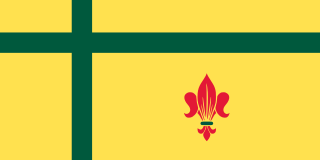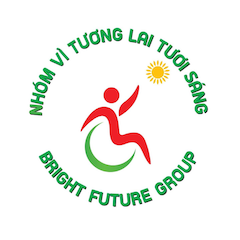A heritage language is a minority language learned by its speakers at home as children, and difficult to be fully developed because of insufficient input from the social environment. The speakers grow up with a different dominant language in which they become more competent. Polinsky and Kagan label it as a continuum that ranges from fluent speakers to barely speaking individuals of the home language. In some countries or cultures which determine a person's mother tongue by the ethnic group they belong to, a heritage language would be linked to the native language.

Fransaskois, , Franco-Saskatchewanais or Franco-Saskatchewanians are French Canadians or Canadian francophones living in the province of Saskatchewan. According to the 2016 Canadian Census, approximately 17,735 residents of the province stated that French was their mother tongue. In the same census, 125,810 Saskatchewanians claimed full or partial French ancestry. There are several Fransaskois communities in Saskatchewan, although the majority of francophones in Saskatchewan reside in the province's three largest cities, Saskatoon, Regina, and Prince Albert.
The Gabriel Dumont Institute (GDI), formally the Gabriel Dumont Institute of Native Studies and Applied Research Inc., is a non-profit corporation serving the educational and cultural needs of the Saskatchewan Métis and Non-Status Indian community, and is the officially-designated education arm of the Métis Nation—Saskatchewan (MN-S).
The Saskatchewan Youth Parliament (SYP) is a non-partisan organization of young people that meets to discuss and debate political and social issues. Members learn about the mechanics of government, such as parliamentary procedure, decision making, and the rules of debate in a parliamentary democracy. Additionally, members are exposed to a variety of viewpoints from youth from around Saskatchewan. At its annual Christmas session, SYP members are given the privilege of debating at the Saskatchewan Legislature in Regina, in the same seats as the real Members of the Legislative Assembly. SYP is run for youth by youth by a cabinet elected at the Annual Christmas Session each year. Cabinet does everything from planning the events, to finances and communications.
Regina, Saskatchewan has a rich cultural life in music, theatre and dance, amply supported by the substantial fine arts constituency at the University of Regina, which has a large fine arts department including faculties of music and theatre. At various times this has attracted notable artistic talent: Donald M. Kendrick and Joe Fafard have been particular stars.

The Canada Saskatchewan Production Studios are located in Regina, Saskatchewan at the corner of College Avenue and Broad Street. Built in 1913, the structure has served as a normal school, military training facility, and fine arts building for the University of Regina. It was internally gutted and reconstructed as a movie and television studio facility in 2002.

The Saskatchewan Arts Board is an arms-length funding agency that provides support to artists, arts organizations and communities. Established in 1948, it was the first agency of its kind in Canada, predating the Canada Council for the Arts by nine years. The Arts Board has offices in Regina and Saskatoon. In May 2020, the agency changed its name to SK Arts.

Culture of Saskatchewan views the patterns of human activity in the central prairie province of Canada examining the way people live in the geography, climate, and social context of Saskatchewan.

Bright Future Group for People with Disabilities, also known as Bright Future Group, is a Vietnamese non-profit organization of people with mobility impairments, who work as volunteers for people with disabilities. Established in 1988 by former students in Hanoi, it is one of the first grassroots organizations of people with disabilities in Vietnam, and celebrated its 20th anniversary on November 16, 2008.
The Federation of Sovereign Indigenous Nations (FSIN), formerly known as the Federation of Saskatchewan Indian Nations, is a Saskatchewan-based First Nations organization. It represents 74 First Nations in Saskatchewan and is committed to honouring the spirit and intent of the Numbered Treaties, as well as the promotion, protection and implementation of these promises made over a century ago.

Montmartre is a village in the Canadian province of Saskatchewan within the Rural Municipality of Montmartre No. 126 and Census Division No. 6. It is 91 kilometres (57 mi) east of the city of Regina on Highway 48.
Founded in 1984, the Saskatchewan German Council Inc. (SGC) is a registered volunteer-based, non-profit organization that promotes the heritage, culture and interests of people of German-speaking backgrounds in Saskatchewan, Canada. The council's head office is located in Saskatoon. 2014 marked SGC's 30th anniversary.
In most provinces of Canada, the third Monday in February is observed as a regional statutory holiday, typically known in general as Family Day —though some provinces use their own names, as they celebrate the day for different reasons. The third Monday of February is observed as "Family Day" in the provinces of Alberta, British Columbia (BC), New Brunswick, Ontario, and Saskatchewan; as Louis Riel Day in Manitoba; as Nova Scotia Heritage Day in Nova Scotia; and as Islander Day in Prince Edward Island.
Saskatchewan Research Network Incorporated (SRNET) is a research and education network providing networking service support education, research and innovation in the province of Saskatchewan, Canada. SRNET is member-driven and is a not-for-profit member of Canada's National Research and Education Network, which provides dedicated high speed network access to institutions and companies across Canada. SRNet also provides members access to CANARIE, a dedicated network that links similar research networks. The network also interconnects high performance computing resources within the province. SRNET's members link in to 112 international advanced networks in over 80 countries. Membership is open to all research, education and innovation organizations and institutions in Saskatchewan.

MediaSmarts is a Canadian non-profit organization and registered charity based in Ottawa, Ontario, that focuses on digital and media literacy programs and resources. In particular, the organization promotes critical thinking via educational resources and analyzes the content of various types of mass media.
Conseil des écoles fransaskoises (CÉF) is a school board in the Canadian province of Saskatchewan. It is headquartered in Regina.

Sigma Pi Alpha Sorority, Inc. (ΣΠΑ) is a Chicana/Latina-based, Greek letter, intercollegiate sorority founded in 1996 at the University of California, Berkeley. Although Sigma Pi Alpha is a Chicana Latina organization by tradition, membership is open to all college females. A sister of Sigma Pi Alpha is also known as an ELLA or a Sigma.

The Ku Klux Klan is an organization that expanded operations into Canada, based on the second Ku Klux Klan established in the United States in 1915. It operated as a fraternity, with chapters established in parts of Canada throughout the 1920s and early 1930s. The first registered provincial chapter was registered in Toronto in 1925 by two Americans and a Canadian. The organization was most successful in Saskatchewan, where it briefly influenced political activity and whose membership included a member of Parliament, Walter Davy Cowan.

The Big River First Nation is a part of the Cree Nation and is located in the Saskatchewan province of Canada. The Big River First Nation is also called ᒥᐢᑕᐦᐃ ᓰᐲᕁ mistahi-sîpîhk in Cree meaning "at the big river". They are signatories of Treaty 6 are located close to Pelican Lake Ojibway, the Big River and Prince Albert National Park. They are 120 km northwest of the city of Prince Albert and 19 km southwest of the village of Debden. The Big River First Nation has nearly 30,000 acres of reserve land. Their reserves include-
The COVID-19 pandemic in Saskatchewan is part of an ongoing global pandemic of coronavirus disease 2019 (COVID-19), a novel infectious disease caused by severe acute respiratory syndrome coronavirus 2 (SARS-CoV-2).









